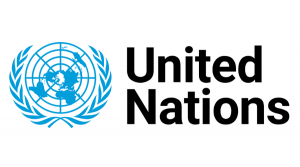

“Impunity compounds the suffering and anguish. Under international human rights law, families and societies have a right to know the truth about what happened. I call on Member States to fulfil this responsibility.”
António Guterres
More than a human rights violation against an individual
Enforced disappearance has frequently been used as a strategy to spread terror within the society. The feeling of insecurity generated by this practice is not limited to the close relatives of the disappeared, but also affects their communities and society as a whole.
Enforced disappearance has become a global problem and is not restricted to a specific region of the world. Once largely the product of military dictatorships, enforced disappearances can nowadays be perpetrated in complex situations of internal conflict, especially as a means of political repression of opponents. Of particular concern are:
- the ongoing harassment of human rights defenders, relatives of victims, witnesses and legal counsel dealing with cases of enforced disappearance;
- the use by States of counter-terrorist activities as an excuse for breaching their obligations;
- and the still widespread impunity for enforced disappearance.
Special attention must also be paid to specific groups of especially vulnerable people, like children and people with disabilities.
Hundreds of thousands of people have vanished during conflicts or periods of repression in at least 85 countries around the world.
Who Is Affected?
The Victims Themselves
The victims are frequently tortured and in constant fear for their lives. They are well aware that their families do not know what has become of them and that the chances are slim that anyone will come to their aid. Having been removed from the protective precinct of the law and “disappeared” from society, they are in fact deprived of all their rights and are at the mercy of their captors.
Even if death is not the final outcome and the victim is eventually released from the nightmare, the physical and psychological scars of this form of dehumanization and the brutality and torture which often accompany it remain.
Friends and Families of the Victims
The families and friends of the victims, experience slow mental anguish, not knowing whether the victim is still alive and, if so, where he or she is being held, under what conditions, and in what state of health. They alternate between hope and despair, wondering and waiting, sometimes for years, for news that may never come. In addition, they are well aware that they, too, are threatened, that they may suffer the same fate themselves and that searching for the truth may expose them to even greater danger.
The family’s distress is frequently compounded by the material consequences of the disappearance. The disappeared person is often the family’s main breadwinner. He or she may be the only member of the family able to cultivate the crops or run the family business. The emotional upheaval is thus exacerbated by material deprivation, made more acute by the costs incurred should they decide to undertake a search. Furthermore, they do not know when —if ever — their loved one is going to return, which makes it difficult for them to adapt to the new situation. In some cases, national legislation may make it impossible to draw a pension or receive other means of support in the absence of a death certificate. Economic and social marginalization is frequently the result.
The serious economic hardships which usually accompany a disappearance are most often borne by women, and it is women who are most often at the forefront of the struggle to resolve the disappearance of family members. In this capacity they may suffer intimidation, persecution and reprisals. When women are themselves direct victims of disappearance, they become particularly vulnerable to sexual and other forms of violence.
Children can also be victims, both directly and indirectly. The disappearance of a child is a clear contravention of a number of provisions of the Convention on the Rights of the Child, including the right to a personal identity. The loss of a parent through disappearance is also a serious violation of a child’s human rights.
Communities
Communities are directly affected by the disappearance of breadwinners, and the degradation of the families’ economic situation and their social marginalization.
Enforced disappearance has frequently been used as a strategy to spread terror within the society. The feeling of insecurity generated by this practice is not limited to the close relatives of the disappeared, but also affects their communities and society as a whole.
Please click here to Read More…





